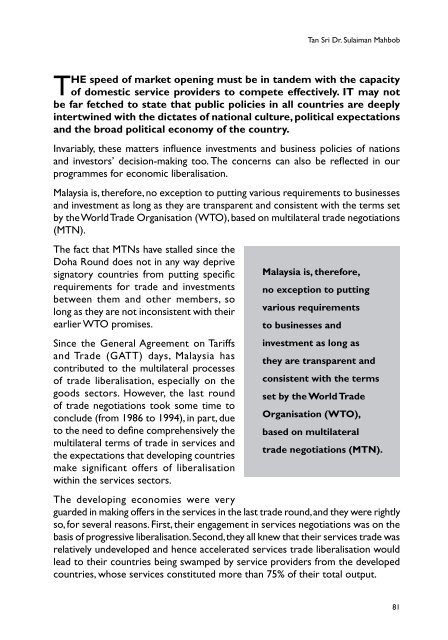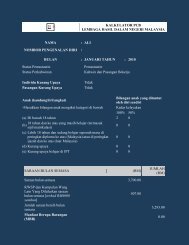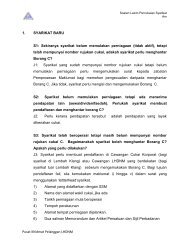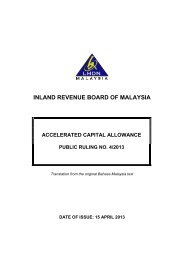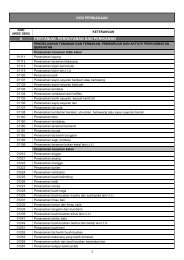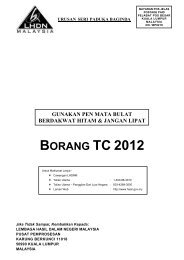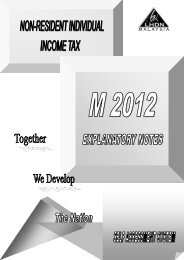Tan Sri Mohd Sidek Hassan
Tan Sri Mohd Sidek Hassan
Tan Sri Mohd Sidek Hassan
- No tags were found...
Create successful ePaper yourself
Turn your PDF publications into a flip-book with our unique Google optimized e-Paper software.
<strong>Tan</strong> <strong>Sri</strong> Dr. Sulaiman MahbobThe speed of market opening must be in tandem with the capacityof domestic service providers to compete effectively. IT may notbe far fetched to state that public policies in all countries are deeplyintertwined with the dictates of national culture, political expectationsand the broad political economy of the country.Invariably, these matters influence investments and business policies of nationsand investors’ decision-making too. The concerns can also be reflected in ourprogrammes for economic liberalisation.Malaysia is, therefore, no exception to putting various requirements to businessesand investment as long as they are transparent and consistent with the terms setby the World Trade Organisation (WTO), based on multilateral trade negotiations(MTN).The fact that MTNs have stalled since theDoha Round does not in any way deprivesignatory countries from putting specificrequirements for trade and investmentsbetween them and other members, solong as they are not inconsistent with theirearlier WTO promises.Since the General Agreement on Tariffsand Trade (GATT) days, Malaysia hascontributed to the multilateral processesof trade liberalisation, especially on thegoods sectors. However, the last roundof trade negotiations took some time toconclude (from 1986 to 1994), in part, dueto the need to define comprehensively themultilateral terms of trade in services andthe expectations that developing countriesmake significant offers of liberalisationwithin the services sectors.Malaysia is, therefore,no exception to puttingvarious requirementsto businesses andinvestment as long asthey are transparent andconsistent with the termsset by the World TradeOrganisation (WTO),based on multilateraltrade negotiations (MTN).The developing economies were veryguarded in making offers in the services in the last trade round, and they were rightlyso, for several reasons. First, their engagement in services negotiations was on thebasis of progressive liberalisation. Second, they all knew that their services trade wasrelatively undeveloped and hence accelerated services trade liberalisation wouldlead to their countries being swamped by service providers from the developedcountries, whose services constituted more than 75% of their total output.81


